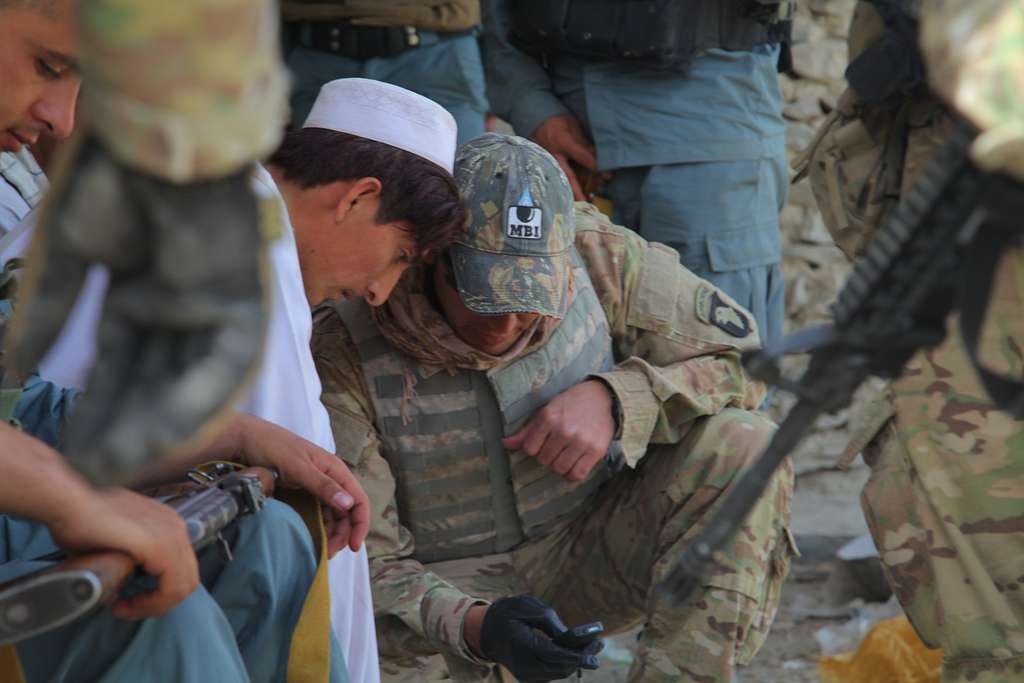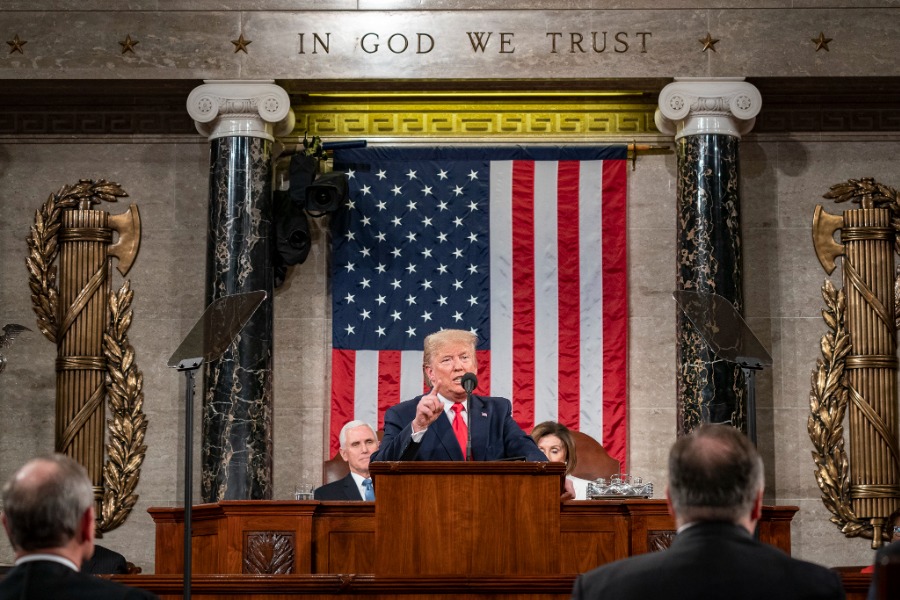President Biden’s Inaugural War Powers Report
On Feb. 25, Biden ordered airstrikes against targets in eastern Syria. His subsequent letter to Congress under the War Powers Resolution is notable in several ways.

Published by The Lawfare Institute
in Cooperation With

On Feb. 25, President Biden ordered airstrikes against targets in eastern Syria, apparently his first use of military force as president. The president directed the strikes in response to rocket attacks against U.S. forces in Iraq, including an attack on Feb. 15 that injured a U.S. service member and killed a Filipino contractor. On Feb. 27, the president reported the military action to Congress in the first report of his presidency submitted under the War Powers Resolution, which requires the president to report to Congress within 48 hours of introducing U.S. armed forces into hostilities. President Trump’s first war powers report also related to Syria, after he ordered missile strikes against Syrian chemical weapons targets in April 2017.
Biden’s letter follows the format of his predecessors’ war powers reports, but it is notable in several ways.
As the domestic law authority for the action, the president cites only his constitutional authority as commander in chief and chief executive. He does not seek to rely on either the 2001 Authorization to Use Military Force (AUMF)—against those responsible for the 9/11 attacks—or the 2002 AUMF—relating to Iraq. This is not surprising. Although the Bush, Obama and Trump administrations cited the 2001 and 2002 AUMFs as continuing authority to use force in Iraq and Syria (including against the Islamic State), members of Congress of both parties have grown increasingly uncomfortable as successive presidents have stretched the 2001 and 2002 authorizations beyond their original purposes—the latter authorization especially so. Democrats were particularly unhappy when Trump administration officials cited the 2002 AUMF as statutory authorization for the Jan. 3, 2020, drone strike that killed Iranian intelligence chief Qasem Soleimani while he was visiting Iraq. The House of Representatives later passed a resolution repealing the 2002 AUMF. Given that the Feb. 25 airstrikes targeted groups that were Iranian backed, rather than remnants or offshoots of the Islamic State, it would have been a legal stretch, and politically impossible, for Biden to rely on either the 2001 or 2002 AUMF.
The letter states, “The United States took this action pursuant to the United States’ inherent right of self-defense as reflected in Article 51 of the United Nations Charter.” This is an appropriate and legally justified reliance on Article 51 as the international law basis to use force in self-defense in another country. Indeed, the citation of an international law basis is more than the War Powers Resolution requires for reports to Congress; Section 4 of the Resolution requires the president only to report “the constitutional and legislative authority”—that is, domestic law authority—for the use of U.S. armed forces. To my knowledge, Bush, Obama and Trump never explicitly cited an international law basis for the use of force in a war powers report, though Scott Anderson has reminded me that President Clinton cited Article 51 in his August 1998 war powers report on U.S. airstrikes in Sudan and Afghanistan.
I have long argued that presidents should explain the international law basis for potentially controversial uses of military force—such as Trump’s airstrikes in Syria, Obama’s raid to capture Osama Bin Laden and Obama’s use of force against the Islamic State. The Biden administration’s national security lawyers should be commended for citing an international law basis for the use of military force in Syria in a war powers report, as a reminder to Congress that the U.S. complies with both domestic and international law.
The letter also states, “The United States always stands ready to take necessary and proportionate action in self-defense, including when, as is the case here, the government of the state where the threat is located is unwilling or unable to prevent the use of its territory by non-state militia groups responsible for such attacks” (emphasis added). To my knowledge, this is the first time a war powers report has made reference to the “unwilling/unable” test as an international law basis to use force against non-state groups in other countries. Bush and Obama administration officials regularly cited the test in speeches—I myself did so while serving in the Bush administration in my 2006 remarks to the London School of Economics—as the basis for the use of force against al-Qaeda, the Islamic State, and other terrorist groups, and the test is included in the Principles Governing Self-Defense Against Non-state Actors articulated by Daniel Bethlehem. But I do not believe the test has ever been cited to Congress in a war powers report. In any case, the statement that the United States “always stands ready” to use force in self-defense against non-state actors in countries that are unwilling or unable to stop the threat they pose is a powerful statement of U.S. national security policy demonstrating continuity across four administrations.
Overall, Biden’s inaugural war powers report is a model of war powers practice and transparency. I hope this transparency will continue and, indeed, that the Biden administration will go further to pursue reform of presidential war powers. I have repeatedly argued in congressional testimony and in my 2016 Lloyd Cutler Rule of Law Lecture that the War Powers Resolution is outdated and should be revised. In 2014, Sens. Tim Kaine and John McCain introduced a bill to do that, although the Obama administration did not support the legislation and the bill went nowhere. The Biden administration should work with Kaine and others in Congress to update presidential war powers, including by repealing the 2002 AUMF, revising the 2001 AUMF and updating the War Powers Resolution.




.jpg?sfvrsn=6cdd11de_5)
